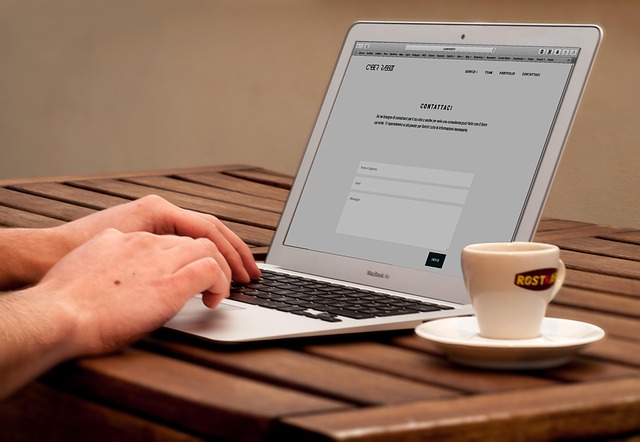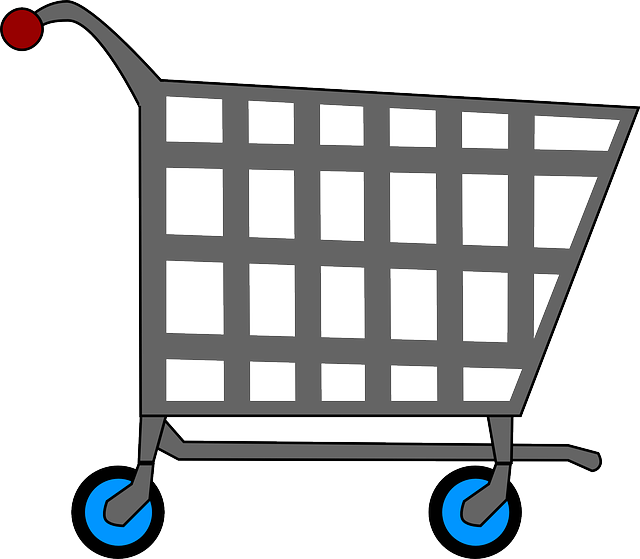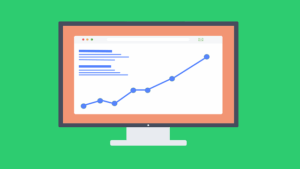Custom e-commerce websites are transforming retail by offering businesses a unique chance to create personalized shopping experiences. Effective ecommerce website design blends aesthetics and functionality, captivating visitors and fostering brand loyalty through interactive features, high-quality visuals, and seamless payment gateways. Investing in custom platforms provides advanced functionality like complex catalogs and dynamic pricing, streamlining operations and boosting sales. Success hinges on intuitive navigation, efficient search algorithms, and engaging interactive elements, with user reviews and a streamlined checkout process building trust. Regular KPI analysis enables data-driven optimizations to enhance ecommerce website design performance.
In today’s digital landscape, a robust e-commerce website design is no longer an option—it’s a necessity. Custom e-commerce websites play a pivotal role in modern retail, offering unparalleled flexibility and functionality tailored to specific business needs. This article delves into the intricacies of creating effective online shopping experiences, from understanding the core components of e-commerce website design to navigating challenges and measuring success. By exploring these key areas, businesses can unlock the full potential of their digital presence.
Understanding Custom E-commerce Websites: Their Role in Modern Retail

In today’s digital landscape, custom e-commerce websites have emerged as a game-changer in modern retail. These tailored online platforms offer businesses an opportunity to create a unique shopping experience that resonates with their brand identity and target audience. A well-designed e-commerce website is more than just a virtual storefront; it becomes the face of a company, shaping customer perceptions and driving sales. With advanced ecommerce website design, businesses can showcase products or services in a visually appealing manner, provide seamless navigation, and offer personalized interactions.
This level of customization allows retailers to stand out from competitors, fostering brand loyalty and encouraging repeat purchases. Modern e-commerce websites incorporate dynamic features such as interactive product demos, customer reviews, and targeted promotions, enhancing the overall user experience. By understanding their target market and leveraging data-driven insights, businesses can create bespoke digital experiences that not only attract visitors but also convert them into loyal customers.
Key Components of an Effective E-commerce Website Design

An effective e-commerce website design is a powerful tool that transforms online visitors into loyal customers. Key components include a clean and intuitive navigation system, making it effortless for users to find products or services. A visually appealing layout with high-quality images and compelling product descriptions engages customers and enhances their browsing experience.
Furthermore, seamless integration of secure payment gateways ensures customers can make transactions confidently. Fast loading times, mobile responsiveness, and search functionality also contribute to a successful design. These elements combine to create an inviting space where users can explore, interact, and purchase products seamlessly, ultimately driving sales and fostering customer satisfaction.
Benefits of Investing in a Custom Built Platform for Your Business

Investing in a custom-built e-commerce website platform offers numerous advantages for businesses looking to thrive in the digital marketplace. One of the key benefits is enhanced user experience; a bespoke site can be tailored to your brand’s unique identity, ensuring a seamless and engaging journey for customers. With full control over design elements, you can create an aesthetic that aligns perfectly with your target audience’s preferences, fostering a sense of trust and loyalty.
Furthermore, custom e-commerce websites provide advanced functionality and flexibility. They allow for the integration of specialized features relevant to your industry or business model, such as complex product catalogs, personalized recommendations, or dynamic pricing. This level of customization can significantly improve operational efficiency, boost sales conversions, and provide valuable insights into customer behavior through data analytics.
Challenges and Considerations in Developing a Custom E-commerce Solution

Developing a custom e-commerce solution presents several challenges and considerations that businesses must navigate. One of the primary hurdles is ensuring a seamless user experience across various devices, given the increasing reliance on smartphones and tablets for online shopping. This requires thoughtful ecommerce website design that prioritises responsiveness, fast loading times, and intuitive navigation.
Another crucial aspect involves integrating secure payment gateways and implementing robust data protection measures to safeguard customer information. Additionally, custom e-commerce platforms must be scalable to accommodate growth in product catalogs and sales volumes without compromising performance. Effective inventory management, efficient order processing, and seamless integration with other business systems are essential for maintaining operational efficiency.
Best Practices for Creating User Engaging Online Shopping Experiences

Creating user-engaging online shopping experiences is paramount for e-commerce websites. One of the best practices is prioritizing intuitive navigation. A well-designed ecommerce website should offer seamless browsing, allowing users to effortlessly explore products by category, brand, or price. Search functionality also plays a crucial role; efficient algorithms that provide relevant search results enhance user satisfaction. Additionally, high-quality product visuals and detailed descriptions are essential. Customers want to see clear images from multiple angles and read about the features and benefits of each item.
Interactive elements can significantly improve engagement. Incorporating features like 360° product views, virtual try-ons (especially for clothing or accessories), or augmented reality filters lets users interact with products in novel ways. User reviews and ratings build trust; displaying genuine customer feedback reassures prospective buyers about their purchasing decisions. Lastly, optimizing the checkout process for speed and simplicity reduces cart abandonment. A streamlined, secure checkout experience encourages conversions by eliminating friction points.
Measuring Success: Metrics to Track for Your Custom E-commerce Website

Measuring success is a vital aspect of any e-commerce website, especially those with custom designs. Unlike generic platforms, bespoke e-commerce sites offer unique features and require specific metrics to gauge performance. Key Performance Indicators (KPIs) should include conversion rates, which reflect how effectively your site transforms visitors into buyers. Tracking bounce rate helps understand user engagement; a lower bounce rate suggests visitors are navigating and interacting with your site.
Additionally, tracking average order value (AOV) provides insights into customer spending habits. Monitoring traffic sources and channel performance allows you to identify the most effective marketing strategies driving sales. Other important metrics include page load times, which impact user experience, and cart abandonment rates, highlighting areas where potential customers drop off. Regularly reviewing these KPIs enables data-driven decisions to optimize your custom e-commerce website design.
